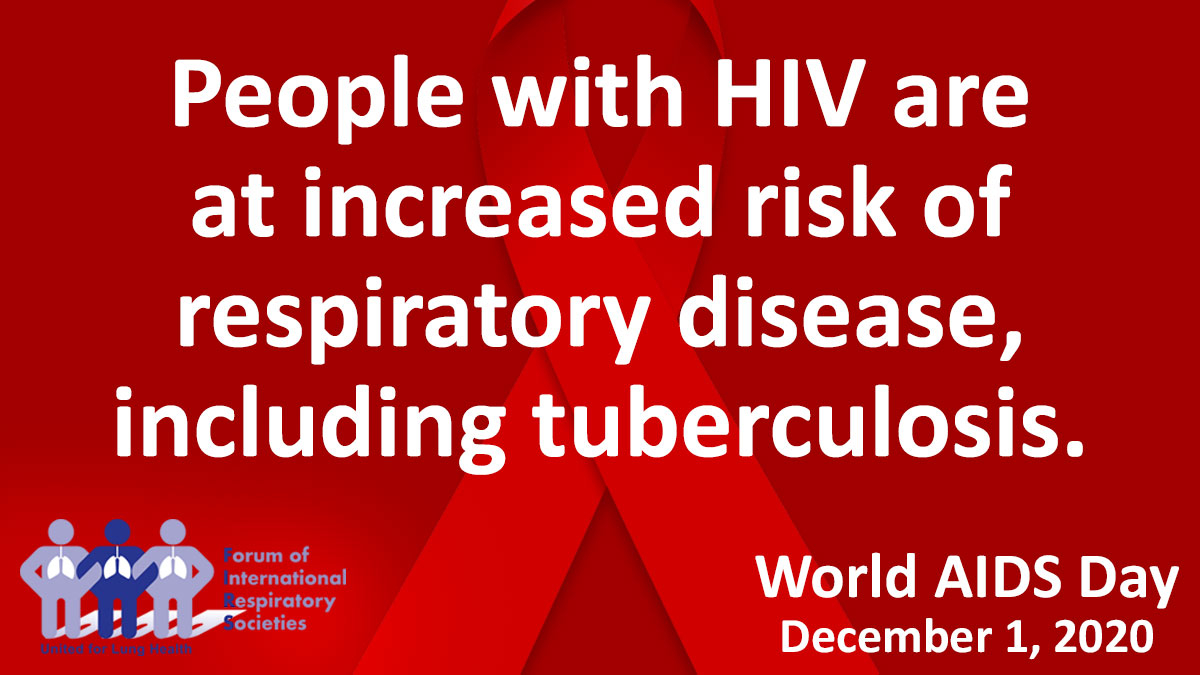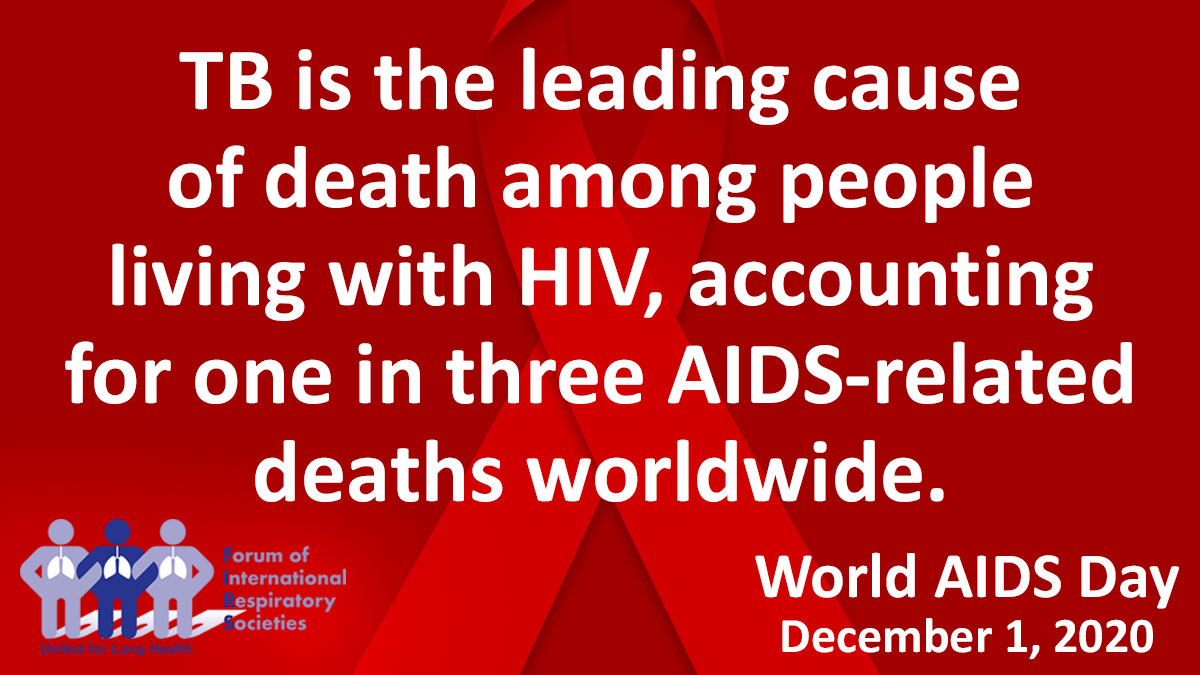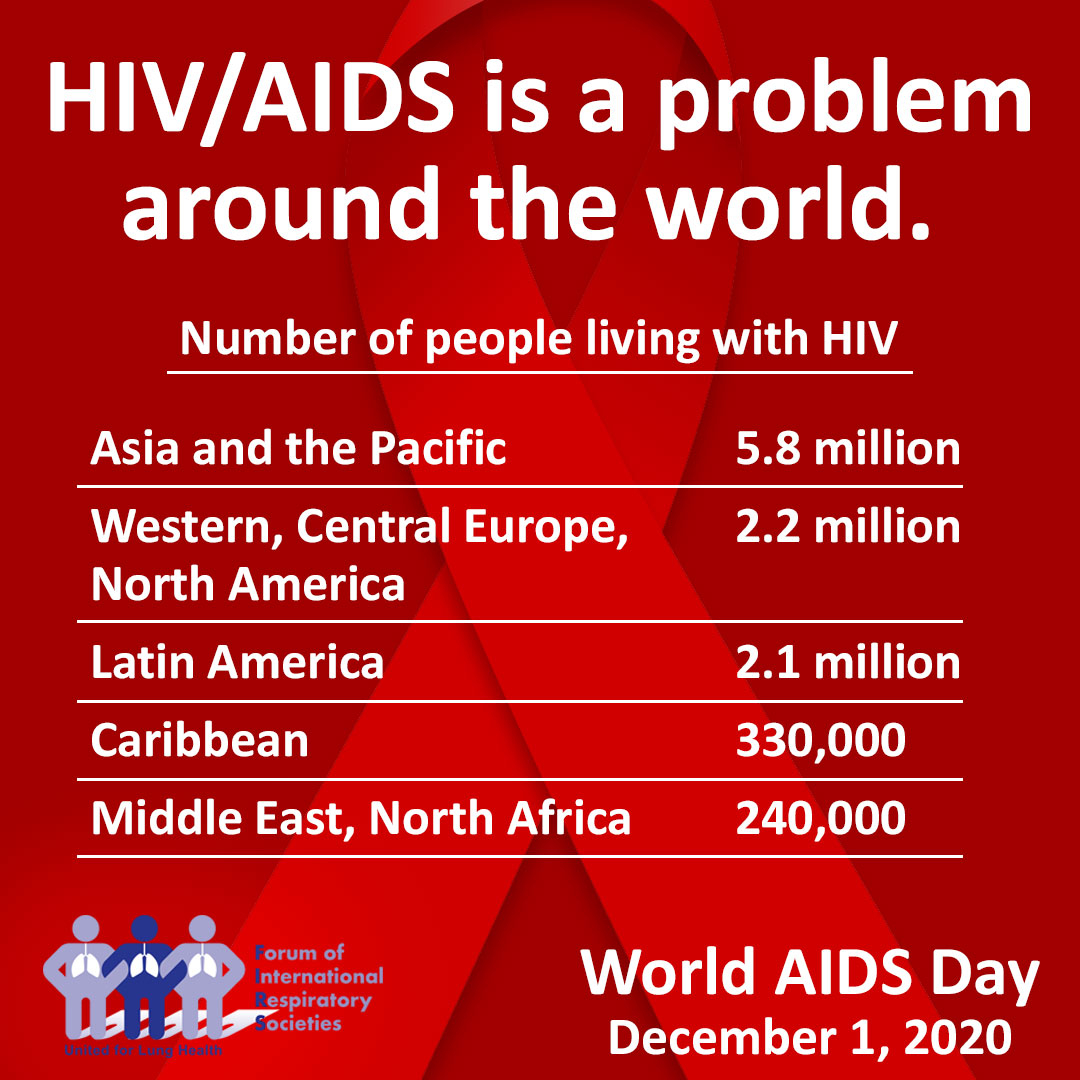お知らせ
APSRからのお知らせ~World AIDS Day, 1 December 2020
海外
日本呼吸器学会 会員の皆様へ
団体加盟しておりますアジア太平洋呼吸器学会より、日本呼吸器学会会員の皆様へお知らせがございますので、以下に掲載いたします。


To Meet HIV World Health Goals,
TB Treatment Must be Maintained
During COVID-19 Response
1 December 2020- The global COVID-19 pandemic has strained health care systems around the world. In the developing world, tuberculosis (TB), which shares several symptoms with COVID-19, is often the first sign that a person has HIV. This World AIDS Day, the Forum of International Respiratory Societies (FIRS), of which Asian Pacific Society of Respirology(APSR) is a founding member, is calling on governments, health advocates and non-government organisations to strengthen their response to AIDS and tuberculosis, and to ensure that TB services are maintained throughout their response to COVID-19.

TB is the leading cause of death among those with HIV/AIDS worldwide, accounting for about one in three deaths, according to the 2020 UNAIDS Global Update. Yet, 60 percent of people living with HIV and tuberculosis are unaware of their co-infection and therefore not receiving the care that could prevent serious illness and death, according to the World Health Organisation (WHO).
"Patients who are HIV positive remain at high risk for TB, and as the world directs its attention to addressing the COVID-19 pandemic, it is it critical that TB programs continue to detect and treat cases," said Juan C. Celed?n, MD, DrPH, ATSF, President of American Thoracic Society, a FIRS founding member. "When treated with preventative therapy, latent TB can be managed, reducing the chance of death from AIDS and TB by about 40 percent."
Shortly after AIDS emerged, it fuelled a global resurgence of TB that continues in many low- and middle-income countries. According to the Centers for Disease Control and Prevention, HIV infection is the strongest risk factor for progressing from latent to active TB.
COVID-19 presents another challenge, as the symptoms are similar to TB and patients can become ill with both diseases. According to the WHO, experience with COVID-19 infection in TB patients remains limited but people ill with both TB and COVID-19 may have poorer treatment outcomes, especially if TB treatment is interrupted. HIV also increases the risk of other infectious respiratory diseases, including Pneumocystis jiroveci pneumonia and bacterial pneumonia, both of which can be life threatening.

Since the AIDS epidemic began, the WHO estimates that 75.7 million people have become infected with HIV and 32.7 million people have died from AIDS-related illnesses.
Education, prevention strategies and new medicines, particularly antiretroviral therapies, have reduced the number of AIDS deaths by 60 percent per year since their global peak in 2004.
Still, UNAIDS estimates that in 2019, 38 million people were living with AIDS and about 1.7 million people became newly infected.
FIRS believes a global response to HIV/AIDS can be strengthened by:
- Increasing awareness of the continuing global threat of HIV-related disease and its link to TB and other respiratory diseases.
- Improving the health outcomes of people living with HIV through patient care and research into improved treatments and treatment strategies for both HIV and TB.
- Reducing the incidence and severity of HIV-related disease by strengthening mother-to-child transmission prevention programs and increasing the early use of antiretroviral therapy.
- Improving HIV education in at-risk communities to reduce the incidence of new HIV infections.
- Reducing HIV-related health disparities and inequities.
"As the global medical community responds to COVID-19, it must also continue to strengthen its response to HIV/AIDS, as well as TB prevention and treatment," said Dr. Celedon. "Not long ago, HIV/AIDS and TB seemed insurmountable, yet HIV/AIDS is now a manageable chronic illness thanks to antiretroviral therapies, and TB is preventable and curable if treated appropriately. As a result, the WHO has set a goal of ending the AIDS epidemic by 2030. The progress we have made against HIV/AIDS and TB should serve as an inspiration for medical systems dealing with COVID-19, as proof that epidemics can be managed."



